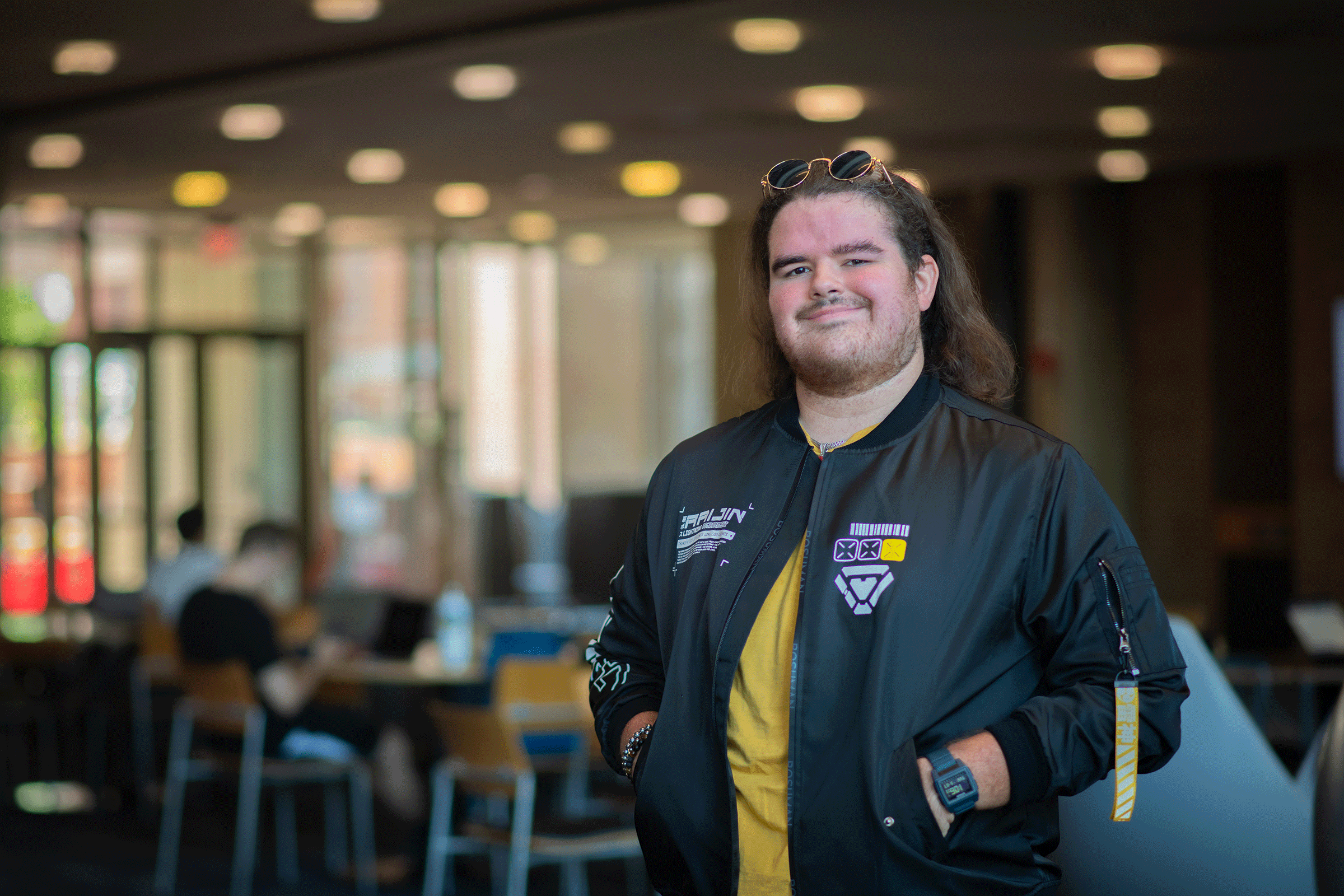Senior Spotlight
‘It transports you into another world’

By the time he graduates from Clark University this May, Pablo Acosta ’24, an interactive media major in the Becker School of Design & Technology, will have contributed to building 10 games. Next year, he will lead a team in creating his 11th game as part of Clark’s 4+1 program, through which he’s seeking a master of fine arts.
“I have a huge passion for gaming. One of my first memories was when I was four years old and played Super Mario Brothers on my Nintendo DS,” Acosta says.
Long after that, he enjoyed other favorites, like Destiny 2 and Cyberpunk 2077.
“When it comes to any medium, gaming is the best,” he says. “It transports you into another world. The interactivity is what makes it all so incredible for me. Games provide me with everything I love about a movie or a series, but with a game, I can sit down and interact with it and, in a way, make it my own.”
After high school in Puerto Rico, Acosta started a game design program at Becker College in Worcester. He was one of nearly 200 Becker students who transferred to Clark in 2021 after the college closed due to financial problems. Becker signed an agreement with Clark to relocate the gaming program, which is ranked No. 3 in the world by Princeton Review.
Acosta settled into Clark, where he connected with a couple of fellow graduates from his high school and became even tighter with the Becker crowd. “It was like the stars aligned,” he says.
Through the school’s required Game Studio — a weekly, semester-long course where a team of student artists, writers, and designers work to develop a game — Acosta contributed to five games over three years. He designed the levels of games through which players advance as well as the games’ “mechanics.”
“To create the mechanics, you create the rules of the game. A mechanic might be that you have the ability to shoot an enemy or to jump, run, and move,” he says. “Mechanics are like the bare essentials of the things you can do in the game.”
Acosta’s design skills were so needed that he was invited to work on a sixth game, Gothic Nights. He also participated in game jams — timed competitions — at Clark to add three more games to his portfolio. And as part of an internship at MassDigi (Massachusetts Digital Game Institute) this spring, he worked on his 10th game, Rodent Rampage.
This summer, Acosta will head home to spend time with his family, then return to Clark in the fall. Like many other MFA students, he will run a Game Studio, leading a team to develop a shooter game using an industry-standard game engine, Unreal Engine 5.
“When it comes to designing, it’s pretty much coming up with the bones, like the blueprint of the game — how the game plays, what you want players to be able to do in the game,” he says. “But you also need to know how to implement.”
The process of implementation can be challenging, according to Acosta.
“You have this idea, and you need to turn it into reality, but you’re given limitations,” he says. “ ‘Scope’ is the boundaries of the idea you can implement into a game. Some people don’t like it because you have to make sacrifices, but I find it a really interesting process — like solving a puzzle.”


